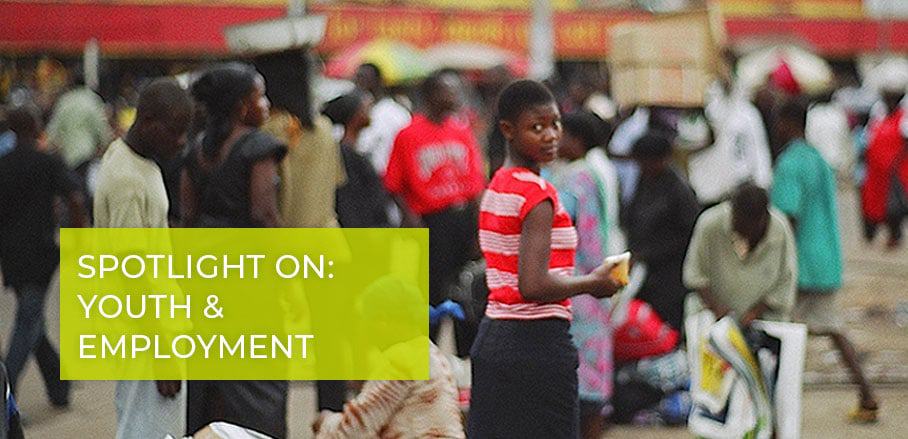Having a Say in What Affects Your Life: Youth Participation in Kumasi, Ghana
In Ghana, several policies and laws aim at including youth in urban planning processes. In reality, however, youth do not take part in city development. Emmanuelle Laurinda Godjo analyses the causes and suggests measures that authorities should take.
“My friends, no one is born a good citizen; no nation is born a democracy. Rather, both are processes that continue to evolve over a lifetime. Young people must be included from birth. A society that cuts itself off from its youth severs its lifetime; it is condemned to bleed to death” – Kofi Annan.
A Contribution to Development
The Agenda 2030 calls for inclusiveness of all segments of society regardless of ethnicity, race, gender – and age. Young people make up a large social group, whose inclusion is crucial to the development of nations in general and cities in particular. In Ghana, youth represent 60 per cent of the population: a real workforce to boost economic development. Unfortunately, youth in Ghana, as in many African countries, are excluded from important decision-making processes such as development planning at the local level.
Authorities and leaders are reluctant to give youth any responsibility, let only involve them in something as big as city development. Ghana, and in particular the Metropolitan City of Kumasi, do not derogate from this fact. This is despite various laws which enjoin the local government to involve young people in those decision-making processes that affects their lives.
A Youth Centre Without Youth
For instance, the youth centre project in Kumasi was built without consulting the youth community. This centre’s focus was on sports, built to encourage physical activity among young people. But are sport and fitness the main needs or priorities of youth communities in Kumasi – where many of them are jobless? Involving youth from the very beginning would have resulted in a different take on the youth centre project.
Youth Participation: Policies and Laws
Three main blueprints promote youth participation at local level. These are the African Youth Charter, the National Youth Policy and the current local Government Act.
The African Youth Charter guarantees youth the right to participate in all spheres of society, and calls for platforms for youth participation in decision making at local, national, regional, and continental levels of governance.
The National Youth Policy recognises youth as valuable resource that must be harnessed for national development. It states that the views of the youth and their participation in national development must be sought and that the Government and other stakeholders must consciously and consistently involve young people in decision making.
The current local government Act 480 and Act 462 requires Metropolitan, Municipal and District Assemblies (MMDAs) to involve local communities and other stakeholders in their development plans. “Stakeholders” are individuals or groups that have interest in development projects or will be affected by the projects’ activities; youth are obviously among them.
Youth Participation: Reality
In spite of these policies, youth participation is not yet effective due to several reasons. Take for example Kumasi Metropolis, Ghana’s second largest city, which has a population of 1,730,249. Youth account for 41 per cent of the total population.
First of all, many young people are not aware of their right to participate in the development planning, nor of the nature of such planning. Furthermore, they do not possess negotiation techniques, communication skills, nor the self-confidence required during planning meetings with adults.
Local authorities lack approaches and techniques to facilitate youth participation in the planning process. The lack of financial resources is a barrier to youth participation in Kumasi Metropolis, as the Assembly would need funds to organise public consultation.
Taking Action
To promote youth participation in planning processes, four main actions need to be taken.
Youth empowerment: Young people need to be adequately capacitated to participate in the process. They need to be educated on their right to participate, the planning process, and the roles they can play in order to make significant inputs. This is the responsibility of both local authorities and civil society organisations, which must act as mentors through workshops, seminars, and trainings.
Institutional capacity building: Local authorities’ staff need to be trained on how to facilitate effective youth participation through attitudes, knowledge, and skills. Local governments should develop policies that ensure youth participation at all levels and develop guidelines for minimum standards in youth participation.
For instance, the Assembly could install a statutory youth development body. Its task would be to facilitate youth during the plans formulation as well as ensuring that youth contribution and requests are taken into consideration in the final plan.
Adequate resources: Local government should make a provision for public consultation in their annual budget. They might establish partnerships with several international organisations that promote youth participation to help them achieve this objective. The central government must provide effective financial and human resources to local governments.
Specification: The blueprints promoting youth participation in planning need to be more specific about the extent to which young people should be involved in decision-making if they are to become effective implementation guidelines.
Youth is still facing many barriers to their say in decisions affecting their life, a situation essentially due to the unawareness of the multiple benefits their participation would bring to the whole community. In Kumasi and elsewhere, youth participation in planning still has a long way to go to be effective. Authorities as well as youth themselves need to take action in this regard.
- Smart Cities and Slum Resilience - 8. October 2019
- Having a Say in What Affects Your Life: Youth Participation in Kumasi, Ghana - 21. February 2019
